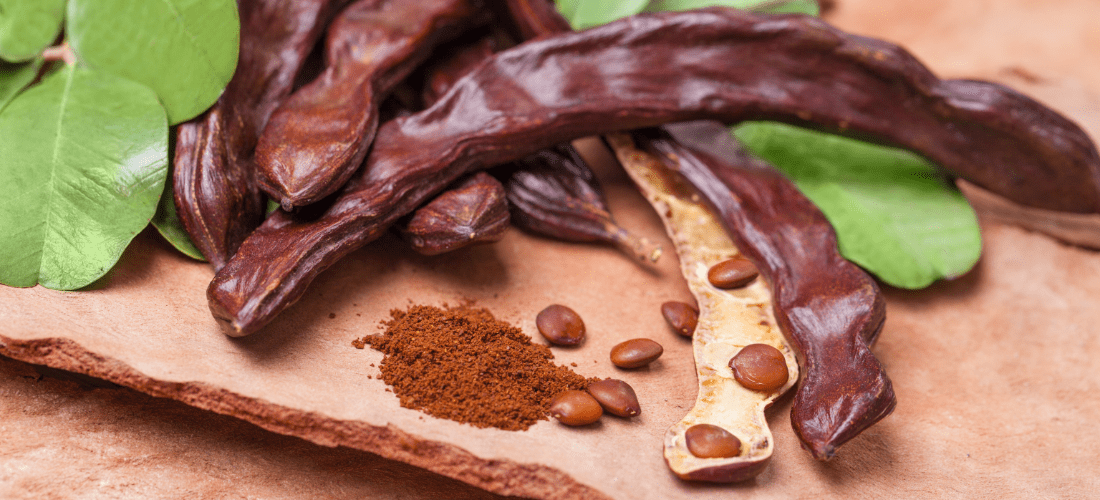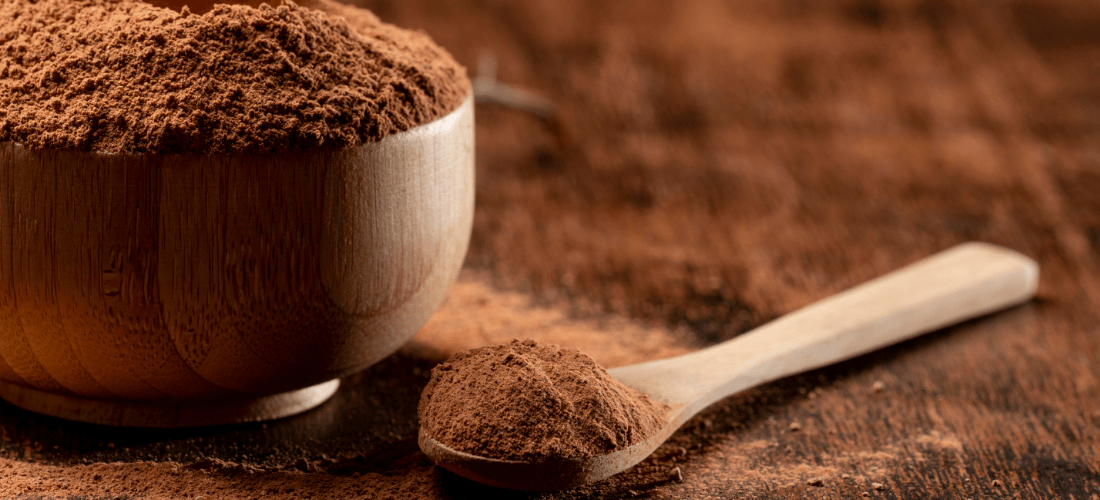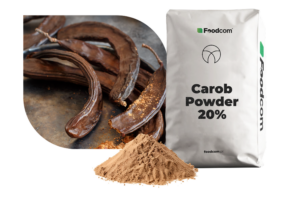In the world of healthy eating and the search for natural substitutes for popular foods, carob is becoming increasingly popular. This inconspicuous plant ingredient is not only a substitute for cocoa, but also a valuable addition to the daily diet. What exactly is carob, where does it come from, and what are its uses? Discover its unique properties and find out why it is increasingly found in food products around the world.
What is carob?
Carob is the ground pods of the carob tree (Ceratonia siliqua), which grows in the Mediterranean climate, mainly in Spain, Italy, Greece, and Turkey. The plant has been used for centuries as a source of food and a natural sweetener.
The most common form of this raw material is carob powder, which is made by drying and grinding the pulp from the pods. It has a delicate caramel, sweet taste and is naturally caffeine-free. This makes it a great alternative for people who are sensitive to classic cocoa.
Carob is not only a natural substitute for cocoa – it is also a valuable source of fiber, calcium, iron, and antioxidants, which support the digestive system and can have a beneficial effect on metabolism. It has a low glycemic index, so it can be safely used by people with insulin resistance or diabetes. It does not contain gluten, lactose or artificial additives, which makes it a popular ingredient in functional, vegan and hypoallergenic products.
In addition, carob has thickening and stabilizing properties, making it a valued ingredient in the food industry – from baked goods and desserts to plant-based drinks and supplements. Thanks to its natural sweetness, it can help reduce the amount of sugar added to recipes. This is particularly important in the creation of health-promoting and low-calorie products.
Properties of carob – what makes it special?
Carob is rich in nutrients and has a beneficial effect on the body. Its most important properties are:
● rich in fiber – supports digestion, improves intestinal peristalsis and has a satiating effect,
● low glycemic index – recommended for people with diabetes and those who limit their sugar intake,
● no caffeine or theobromine – ideal for children, pregnant women and people with hypertension,
● source of antioxidants – neutralizes free radicals, supporting cell protection against oxidative stress,
● natural sweetness – thanks to natural sugars, it does not require additional sweetening.
It is also worth mentioning that organic carob 45% contains a standardized amount of natural sugars, which makes it even more valuable in terms of functionality and taste.
Carob vs. cocoa – comparison
When comparing carob and cocoa, several important differences can be noted:
● taste – carob is milder, more caramel-like and less bitter than cocoa,
● composition – carob does not contain caffeine or theobromine, unlike cocoa,
● use – both ingredients can be used in similar ways – in baked goods, drinks, desserts, but carob is naturally sweet, so you can often skip the extra sugar.
If you are wondering what alkalized cocoa is, it is a form of cocoa that has been treated with alkali to reduce its acidity and improve its solubility. A popular product of this type is alkalized cocoa powder 10-12%, which contains caffeine.
The use of carob in cooking and industry
One of the greatest advantages of carob is its versatility. It can be used both in home cooking and on an industrial scale, primarily as:
- an additive to cakes, cookies, and muffins (instead of cocoa),
- a base for plant-based drinks and chocolate substitutes,
- an ingredient in energy and protein bars,
- a natural sweetener in desserts for children,
- an ingredient in functional food recipes.
Various variants of this product are available on the market, including carob powder 45% and carob powder 60%, which differ in their natural sugar content and intensity of flavor. The choice of a specific type depends on the intended use. The 60% version is suitable for more distinctive baked goods, while the milder 45% carob is ideal for beverages or light desserts.
Why choose carob at FDCM.eu?
High-quality raw materials are the key to achieving the best results in both the food industry and home cooking. The products offered on the FDCM.eu platform meet the highest standards of quality, purity, and safety.
Whether you choose organic carob 45% or classic carob 60%, you can be sure that the product has been carefully selected and processed to retain its full nutritional value.
Carob in a modern lifestyle
More and more people are paying attention to the composition of food products, looking for natural alternatives to highly processed ingredients. Carob fits perfectly into this trend – it is natural, vegan, gluten-free, and has no added sugar. It can be used in plant-based, paleo, low-carb, and many other diets.
Thanks to its mild texture and slightly sweet taste, it successfully replaces cocoa in many recipes without causing hyperactivity, which can occur in children after consuming cocoa products.
Carob – a healthy alternative that works in every kitchen
Carob is more than just a cocoa substitute – it is a wholesome food product with a wide range of uses and numerous health benefits. Its delicate flavor, lack of caffeine, and high fiber content are making it increasingly popular in kitchens around the world.
If you are looking for a natural ingredient with a wide range of applications in the food industry, carob powder is an excellent choice for companies operating in the B2B segment. FDCM.eu offers it in various forms, tailored to the needs of food producers, bakeries, confectioneries, and catering companies. It is a high-quality product that can be used as a natural substitute for cocoa, enriching recipes with a mild, sweet taste and nutritional value.







